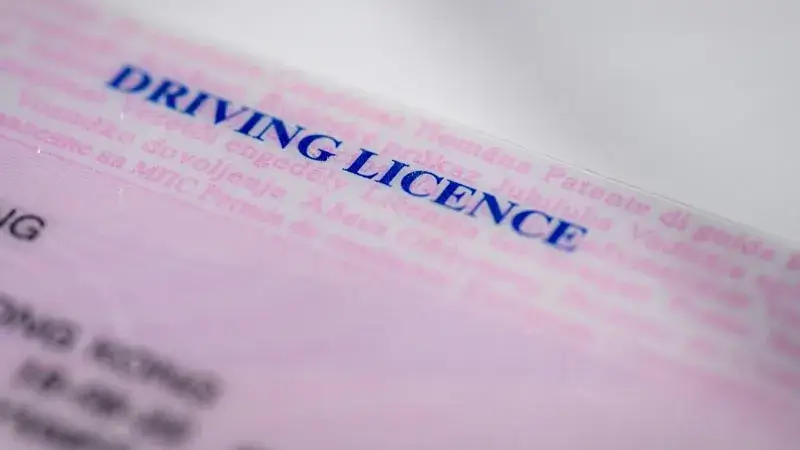Did you know that the Driver Certificate of Professional Competence (CPC) training initiative has become a crucial requirement for commercial drivers? With the ever-changing landscape of commercial driving, continuous professional development is key to success.
In this article, we will explore the importance of Driver CPC training, the benefits of proactive management, and clarify whether it counts as working time. Additionally, we will discuss strategies for evaluating the quality of training and maintaining essential records for compliance.
Join us as we uncover the revolutionary aspects of Driver CPC training for commercial driving success.
Key Takeaways
- Driver CPC training is a mandatory requirement for commercial drivers, ensuring they have the necessary qualifications and skills.
- Proactively managing Driver CPC training benefits companies by ensuring drivers complete valid training over a five-year period and addressing any skill gaps.
- There is a grey area regarding whether Driver CPC training counts as working time, with certain conditions determining whether it is considered duty or voluntary.
- Assessing the quality of Driver CPC training can be done through debriefing drivers, attending courses, requesting lesson plans, and reviewing audit reports from training providers.
The Importance of Driver CPC Training
Driver CPC Training is crucial for ensuring commercial drivers possess the necessary skills and qualifications to excel in their roles. Introduced in 2008 for PCV and 2009 for HGV, this training initiative requires drivers to undertake initial CPC training during acquisition and periodically every five years.
It not only ensures that drivers have the necessary qualifications to drive commercially but also helps address any training requirements or skill gaps in their roles. Proactively managing Driver CPC training is the responsibility of individual drivers, but companies benefit from this approach as well.
Benefits of Proactive Driver CPC Management
Proactive management of Driver CPC training offers numerous benefits for both individual drivers and companies alike. By taking a proactive approach to Driver CPC management, drivers and companies can experience the following advantages:
- Enhanced Compliance: Proactively managing Driver CPC training ensures that drivers complete the required training within the five-year period. This helps companies remain compliant with regulations and avoid penalties or fines.
- Improved Safety: Regular and proactive training helps drivers enhance their skills and knowledge, resulting in improved safety on the road. By addressing any training requirements or skill gaps, companies can contribute to creating a safer driving environment.
- Increased Efficiency: By spreading the required 35 hours of training over the five-year period, companies can avoid the last-minute rush and potential disruptions to operations. Proactive management allows for better planning and scheduling of training, leading to increased efficiency and productivity.
Clarifying Driver CPC Training as Working Time
To provide clarity on the classification of Driver CPC training as working time, it is important to examine the guidelines and regulations surrounding this topic.
The grey area surrounding whether Driver CPC training counts as working time has caused confusion among commercial drivers. According to GV262 (section 1.3 Duty), training related to obtaining or retaining a Driver CPC can be considered as duty.
However, it is important to note that Driver CPC training can only be undertaken during rest periods if attended voluntarily. On the other hand, if the training is requested or instigated by the employer, it is considered duty.
To fully understand the regulations and criteria for Driver CPC training as working time, it is recommended to refer to the full section for more information.
Evaluating the Quality of Driver CPC Training
Evaluating the efficacy of Driver CPC training is crucial for ensuring the quality and effectiveness of commercial driving education. To assess the quality of Driver CPC training, consider the following:
- Debrief drivers after the course and assess their knowledge: Engage with drivers to gather feedback on the training content, delivery, and overall effectiveness. This will help identify areas for improvement and ensure that the training is meeting the desired objectives.
- Attend the courses yourself and assess the quality of training: By experiencing the training firsthand, you can evaluate the instructor’s teaching methods, course materials, and the overall learning environment. This will provide valuable insights into the quality of the training being provided.
- Request lesson plans or course overviews from the training provider: Obtaining detailed information about the course structure, learning outcomes, and training materials will give you a better understanding of the training content and its relevance to commercial driving.
Essential Records for Driver CPC Compliance
One essential record for Driver CPC compliance is keeping a record of each driver’s course certificates. These certificates serve as proof that the driver has completed the required training and obtained the necessary qualifications to drive commercially. By maintaining these records, companies can ensure that their drivers are up to date with their training and comply with the Driver CPC regulations. Additionally, these records allow for the review of attended courses and the planning of future training sessions. In the event of disciplinary actions or audits, these records can be invaluable in assessing the driver’s CPD and ensuring compliance. The table below provides a visual representation of the essential records that should be kept for Driver CPC compliance.
| Record | Purpose | Importance |
|---|---|---|
| Course certificates | Proof of completed training | Ensures compliance with CPC |
| Training attendance records | Documentation of training sessions attended | Tracks driver’s training history |
| Driver’s personal details | Identification and contact information | Facilitates communication and updates |
| Training provider information | Contact details and certification information | Ensures transparency and verification |
| Training plan and schedule documents | Overview of planned and completed training | Assists in future training planning |
Frequently Asked Questions
What Is the Process for Obtaining a Driver CPC Qualification?
The process for obtaining a Driver CPC qualification involves undertaking initial CPC training during acquisition and completing periodic training every five years. This training ensures that drivers have the necessary qualifications to drive commercially and helps address any training requirements or skill gaps in their roles.
It is the responsibility of the individual driver to achieve and maintain a valid Driver Qualification Card (DQC), and companies benefit from proactively managing Driver CPC training to ensure it is completed over the five-year period.
How Often Do Drivers Need to Complete Driver CPC Training?
Drivers need to complete Driver CPC training periodically every five years. This training is a requirement for commercial drivers and ensures they have the necessary qualifications and skills to drive commercially.
It is essential for drivers to proactively manage their Driver CPC training to avoid leaving all 35 hours of training to the last year.
Companies benefit from this proactive approach as it allows addressing any training requirements or skill gaps in drivers’ roles.
Is Driver CPC Training Mandatory for All Commercial Drivers?
Yes, Driver CPC training is mandatory for all commercial drivers.
It was introduced in 2008 for PCV and 2009 for HGV drivers and requires them to undertake initial CPC training during acquisition.
This training must be completed periodically every five years to ensure that drivers have the necessary qualifications to drive commercially.
It is the responsibility of the individual driver to achieve and maintain a valid Driver Qualification Card (DQC) through proactive management of their training.
Can Driver CPC Training Be Completed During Working Hours?
Driver CPC training can be completed during working hours, but it depends on whether it is voluntary or requested/instigated by the employer.
If the training is attended voluntarily during rest periods, it may not be considered as working time.
However, if the employer requests or initiates the training, it is considered as duty and therefore counts as working time.
It is important to refer to the relevant regulations and guidelines, such as GV262, for more detailed information on this matter.
What Are the Consequences of Not Keeping Proper Records of Driver CPC Training?
The consequences of not keeping proper records of Driver CPC training can be significant. Without accurate records, it becomes difficult to demonstrate compliance with the training requirements. This can lead to penalties, fines, or even the suspension of commercial driving privileges.
Proper record-keeping is essential for reviewing attended courses, planning future training, and assessing drivers’ Continuous Professional Development. It also helps in the event of disciplinary actions, as it provides evidence of training completion and ongoing compliance.
Round Up
Driver CPC training is an essential component of commercial driving success. Proactive management of this training ensures that drivers acquire the necessary qualifications and skills to drive commercially.
While there may be uncertainties surrounding whether Driver CPC training counts as working time, it is crucial to maintain records and comply with regulations. Evaluating the quality of training and maintaining essential records are key strategies for effective planning and compliance.
Revolutionise your approach to Driver CPC training for unparalleled success in the industry.
Share This Article, Choose Your Platform!
continue reading
Related Posts
In the vast world of transportation, drivers must navigate a complex web of regulations to ensure their compliance and safety.
In today’s ever-evolving landscape of driver licence checks, staying up-to-date with crucial updates and understanding associated risks is paramount.





